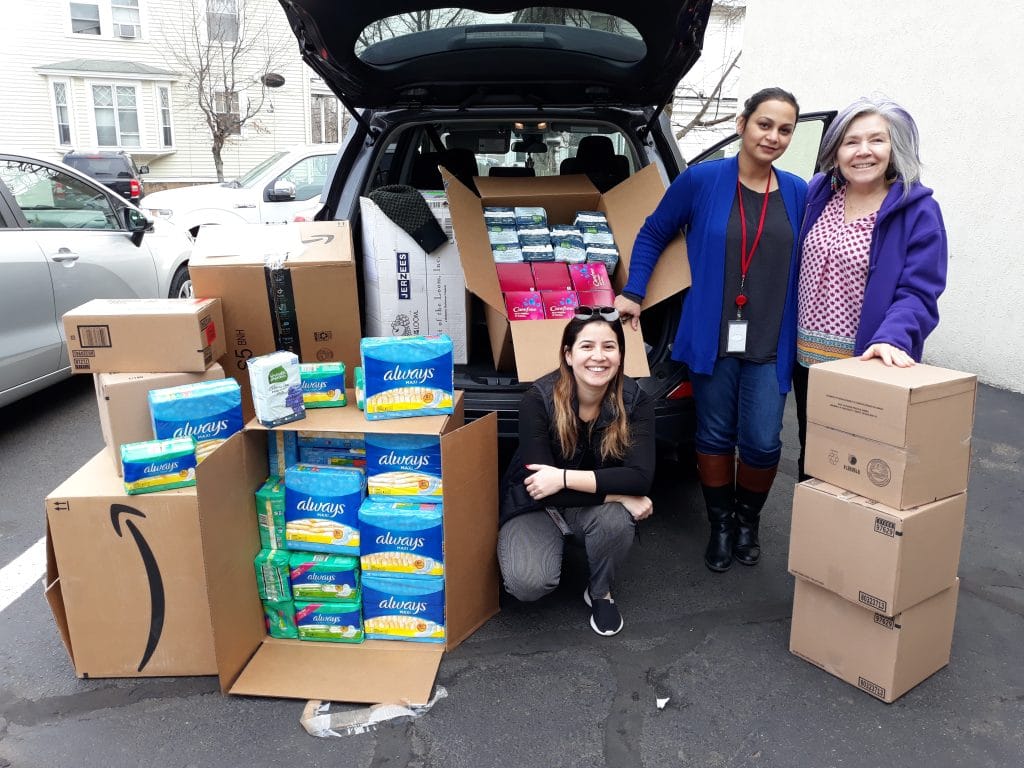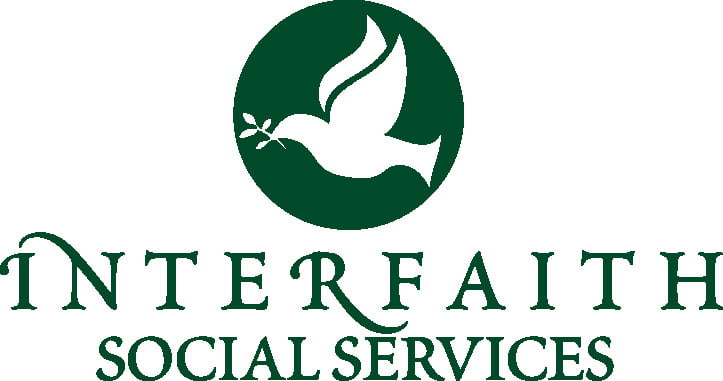Help us ensure that everyone we serve receives the menstrual hygiene products they need each month!
Our food pantry serves approximately 425 people who menstruate every single month. Last year we distributed 101,400 individual pads and tampons! Clients receive 20 pads or tampons each time they visit us. Each bag costs us about $6.30, totaling $2,678 per month.
We are so grateful to community members and organizations who donate and drop off pads and tampons for our clients; but it isn’t nearly enough to keep up with the demand.
With a $25 donation, you can provide 4 bags of menstrual hygiene products to those in need. Make that a monthly donation and you will provide 48 bags per year!
Help Interfaith keep the money “flowing!”
Donate monthly for that time of the month

Menstrual hygiene is not a luxury
Interfaith is a safety net for thousands of children and families from the South Shore who are struggling to make ends meet. We believe that like the food we provide, menstrual products are a necessity, not a luxury.
Federal assistance programs like SNAP and WIC do not allow the purchase of period products.
The National Institute of Health estimated that 16.9 million menstruating individuals in the United States live in poverty, two-thirds of which are low-income and food-insecure. These individuals cannot afford basic menstrual products. Those who face this scarcity of resources may miss work and school and are sometimes driven to improvise using unsanitary alternatives.
Interfaith is committed to ensuring all the clients we serve never go without the period products they need. We rely on monetary donations from caring donors like you to help us maintain this commitment.
You can help!
Join our Circle of Friends: Give monthly to ensure that everyone we serve in our food pantry has the menstrual hygiene items they need each and every month.
We use inclusive language when discussing period products to reflect our diverse clientele. We acknowledge that not all people with periods are women, and that not all women have periods. As such, we avoid using the terms “women,” “girls,” or “feminine hygiene” when referring to menstrual products.
